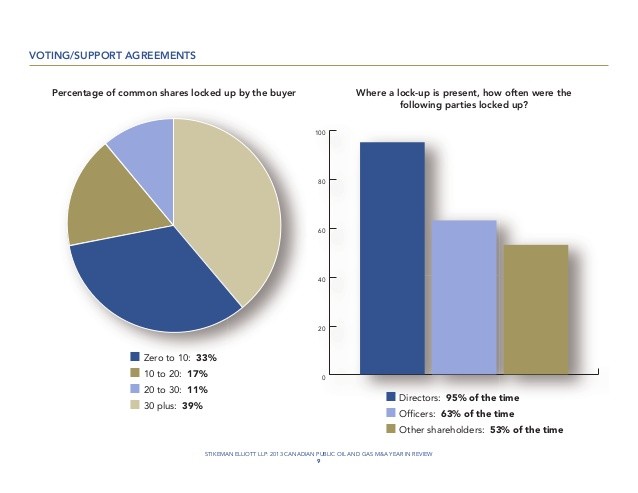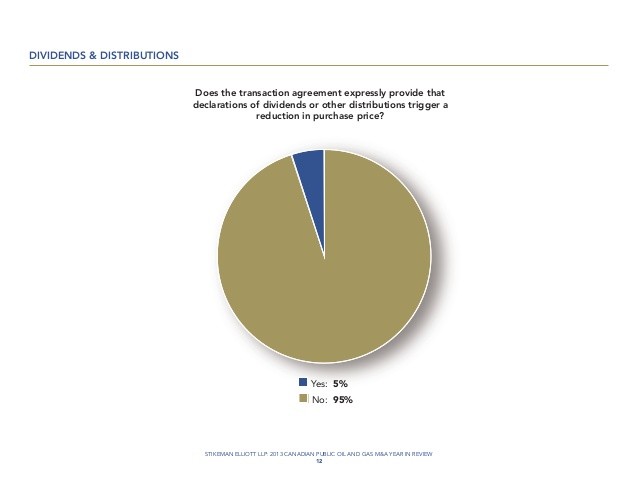Stikeman Elliott LLP Publications Tax Law Update Amendments to Stock Option Rules
Post on: 15 Апрель, 2015 No Comment

Amendments to Stock Option Rules
Bill C-47 (Draft Legislation), which passed second reading as of November 4th 2010 and has been sent to the House Finance Committee, implements the announcements made in the March 4, 2010 Federal Budget (Budget 2010) with respect to changes in the taxation of stock option benefits. The comments in this update describe the main changes to the cashing-out of stock options, the employers’ withholding obligations and the deferral of the stock option benefit in respect of publicly traded shares.
Cashing-out the Stock options
In general terms, the employee stock option rules require employees to include in their income the difference between the fair market value of the optioned securities at the time the option is exercised and the amount paid by the employee to acquire the security (and, where applicable, the option). The employer is not entitled to claim a deduction when it issues shares upon the exercise of an employee stock option. While this stock option benefit is fully included in the employee’s income, provided that certain conditions are satisfied, the employee is able to deduct one-half 1 of the amount of the benefit when determining his/her taxable income (the Stock Option Deduction). Where this deduction is available, the employee’s stock option benefit is, in fact, taxed at the same effective tax rate as a capital gain 2. In many instances, employee option holders and their employers prefer to have the employer pay in cash the in-the-money value of the option in exchange for the cancellation of the option. In such case, prior to the Budget 2010 and when properly structured, the employee was able to have his or her stock option benefit effectively taxed as a capital gain, while the employer was generally entitled to a tax deduction equal to the amount of the payment.
The Draft Legislation confirms that an employee will not be able to claim a Stock Option Deduction on the disposition of an option to acquire shares 3 unless the corporation that has agreed to sell or issue the shares (the Option Issuer) to the employee files an election 4 that neither it nor any person not dealing at arm’s length 5 with it will claim a deduction with respect to the payment made to the taxpayer. The election must be filed with the Minister and an evidence of the election must be provided to the employee who must file such evidence with his or her tax return for the year in which the options are surrendered. The wording of the Draft Legislation implies that the Option Issuer must elect in respect of each grant of options to individual employees.
The Draft Legislation does not seem to apply to a cashless exercise, i.e. instead of the employee surrendering his or her options to receive the in-the-money value, the Option Issuer arranges with a broker for the exercise price to be advanced to the employee and the employee exercises the options with a direction to the broker to immediately sell the shares on the open market to satisfy the payment of the exercise price and any applicable tax withholdings. Note that the broker fees, if paid by the option issuer, should be a taxable benefit to the employee.
Canadian option issuers and foreign parent option issuers granting or having granted options to employees of their Canadian affiliates should consider the following:
- Review their existing plans to consider whether they have discretion to accept or refuse a cash-out of options.
- Determine whether they want to make the election to give to their employees the benefit of the Stock Option Deduction.
- Determine whether they should amend their existing stock option plan to include the obligation for the Option Issuer to make the election in case of a cashing out of the stock option by the employee.
- Review accounting impact of new measure on financial statements.
Employers’ Withholding Obligations
The Draft Legislation also clarifies the employer’s source deduction withholding requirements in respect of an employee’s stock option benefit. Such benefit has to be determined in the year that the option is exercised and will be computed as if the value of the stock option benefit had been paid to the employee as a cash bonus. As a result of this new measure, employers will have to make a withholding upon the exercise of the options even if only shares are distributed to the employees. The purpose of this measure is to prevent situations where employees are unable to meet their income tax obligations as a result of the decrease in value of securities acquired on exercise of options. The following considerations apply to the withholding requirement:
- If the stock option benefit qualifies for the Stock Option Deduction, the amount of the tax required to be withheld can be reduced to reflect this deduction.
- If the options were granted before 2011 pursuant to a written agreement entered into before March 4, 2010 and such written agreement, at that time, included a written condition that restricts the employee from disposing of the shares for a period of time after the exercise, no tax withholding needs to be performed. 6
- No tax withholding needs to be performed where the stock option benefit arises in respect of the exercise of options on shares of a Canadian controlled private company.

Before the Budget 2010, the Canada Revenue Agency’s (CRA) tolerated that no income taxes may be withheld at source on stock option benefits if no other cash remuneration was paid to an employee or if the withholding would cause undue hardship to the employee. This undue hardship policy did not apply to stock options exercised by non-resident employees or to cashless exercise programs. The Draft Legislation formally eliminates the undue hardship policy and any tax liability resulting from the exercise of a stock option will not, unless it can be otherwise deferred 7. qualify as reasons for a reduction of tax withholding by the CRA.
Where a foreign parent company grants stock options to employees of its Canadian affiliate or subsidiary, the foreign parent company is technically responsible for withholding and reporting the stock option benefit unless the costs to the foreign parent company are recharged to the Canadian affiliate or subsidiary. However, in practice, the Canadian employer typically reported the stock option benefit and took care of the withholding remittances. There has been no indication from CRA that this practice is not acceptable any more.
Option issuers should consider the following:
- Option Issuers should review their current administrative procedures for withholding on stock options and ensure that it complies with the Draft Legislation.
- To fulfill their tax withholding obligations, Option Issuers are required to track the option exercises of former employees.
- Option Issuers may consider establishing a cashless exercise program that complies with withholding obligations.
- Option Issuers may consider advising employees and former employees of the issuers’ administrative procedure to comply with their withholding obligations which may include the sale of a portion of the shares underlying stock options by a broker to cover the applicable withholding taxes unless, for example, the employee pays the applicable withholding amount in cash to the Option Issuer and suggest them to consult their own tax advisor.
- Option Issuers may consider amending their stock option plans to clarify their administrative procedures to comply with their withholding obligations, particularly if such amendment can be effected without security holder approval under the terms of the relevant plan.
- Employers may consider reviewing other equity compensation programs such as employee stock purchase plans in which shares may be issued to comply with the new withholding rules and consider the tax withholding process that must be established.
Public Corporations Stock-Option Deferral
Since 2000, employees of public companies were permitted to elect to defer the inclusion of the stock option benefit realized on the exercise of their stock options, to the year in which they disposed of the optioned securities (subject to an annual limit of $100,000). In the Budget 2010, the Government has announced its intention to repeal such election to defer the income inclusion with respect to stock options exercised after March 4, 2010.
The Draft Legislation provides that no deferral elections may be filed for publicly listed shares acquired after March 4, 2010 8 .
Individuals will be able to make an election to limit the tax liability on the deferred option benefit to an amount equal to the ultimate sale proceeds received. The elective relief will be adjusted to take into account the capital losses arising from the disposition of the shares and their application against capital gains from other sources. This election will be available for shares sold before 2015 (including shares sold before March 4, 2010). For shares sold before 2010, individuals will be required to file the election by the filing due date for their 2010 personal tax returns. However, the election can only be made where the individual elected to defer taxation of the benefit arising from the exercise of options to acquire shares that were traded on certain stock exchanges.
Options Issuers should consider communicating to employees and former employees that it is no longer possible to defer taxation on the stock option benefit upon exercise of their options and suggest to consult their own tax advisor to review consequences of the Budget 2010.
1. However, the deduction is only 25% (rather than 50%) for Quebec tax purposes.
2. Except in Quebec where the effective tax rate is 30% instead of 24% for capital gain.
3. Or units in case of a mutual fund trust.
4. On a prescribed form, not yet released.
5. Issues may have to be considered when a foreign parent corporation has granted options to Canadian employees.
6. Such a condition is however not frequently used in stock option plans.
7. Which may be the case with Canadian controlled private companies options.
For further information, please contact your Stikeman Elliott representative, any author listed or any member of the practice group.














